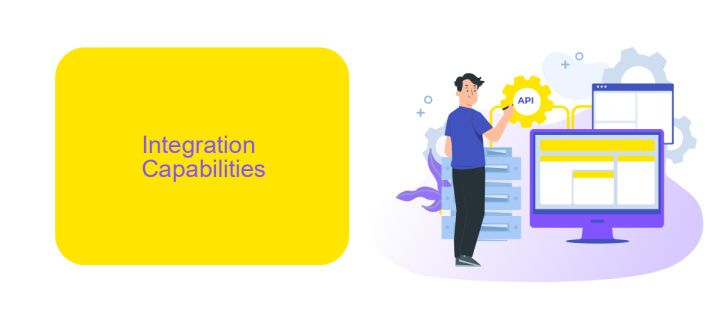MuleSoft Vs Heroku
In the rapidly evolving landscape of cloud computing and integration platforms, choosing the right tools is crucial for business success. MuleSoft and Heroku, both part of Salesforce's ecosystem, offer distinct advantages for developers and enterprises. This article delves into the key differences and unique benefits of MuleSoft and Heroku, helping you make an informed decision for your specific needs.
MuleSoft vs. Heroku
MuleSoft and Heroku are two powerful platforms that serve different purposes in the realm of application development and integration. MuleSoft is primarily focused on API management and integration, allowing businesses to connect various systems and applications seamlessly. Heroku, on the other hand, is a platform-as-a-service (PaaS) that enables developers to build, run, and operate applications entirely in the cloud.
- Purpose: MuleSoft excels in API integration, while Heroku is designed for app deployment and management.
- Flexibility: MuleSoft offers extensive integration capabilities, whereas Heroku provides a flexible environment for app development.
- Ease of Use: MuleSoft may require more technical expertise, while Heroku is user-friendly and suitable for rapid development.
- Scalability: Both platforms are highly scalable, but Heroku's PaaS model simplifies scaling applications.
For businesses looking to streamline their integration processes, services like ApiX-Drive can complement MuleSoft by offering easy-to-use automation tools. Meanwhile, Heroku's cloud-based environment is ideal for developers seeking a straightforward platform for deploying and managing their applications. Ultimately, the choice between MuleSoft and Heroku depends on specific business needs and technical requirements.
Integration Capabilities

MuleSoft offers robust integration capabilities, allowing businesses to connect various applications, data, and devices seamlessly. Its powerful Anypoint Platform provides a unified solution for API management, design, and analytics, making it easier to build and manage integrations. MuleSoft supports a wide range of protocols and offers pre-built connectors for popular services, enabling swift and efficient integration processes. Furthermore, the platform's scalability ensures it can handle both small-scale projects and large enterprise-level integrations with ease.
Heroku, on the other hand, provides a more streamlined approach to integration through its add-ons and third-party services. While it may not offer the same extensive range of built-in connectors as MuleSoft, Heroku's marketplace includes numerous tools for integration, such as ApiX-Drive. ApiX-Drive simplifies the process of connecting various services and automating workflows, making it an excellent choice for businesses looking to enhance their integration capabilities without extensive technical knowledge. Overall, Heroku's integration ecosystem is designed to be user-friendly and adaptable, catering to developers who prioritize ease of use and quick deployment.
Deployment and Scalability

When it comes to deployment and scalability, both MuleSoft and Heroku offer robust solutions but cater to different needs. MuleSoft is ideal for complex integrations and enterprise-level applications, providing a comprehensive platform for API management, connectivity, and orchestration. Heroku, on the other hand, excels in simplifying the deployment process for developers, offering a Platform-as-a-Service (PaaS) that supports multiple programming languages and automates infrastructure management.
- MuleSoft provides extensive tools for managing APIs and integrations, making it a go-to choice for enterprises needing to scale complex workflows.
- Heroku's ease of use and seamless deployment process make it perfect for startups and smaller projects that require quick scaling and minimal infrastructure concerns.
- ApiX-Drive can be integrated with both MuleSoft and Heroku to streamline data flows and automate integrations, enhancing scalability and reducing manual effort.
In conclusion, choosing between MuleSoft and Heroku depends on your specific needs. For enterprises requiring intricate integrations and API management, MuleSoft is the way to go. For developers seeking a simplified deployment process with easy scaling, Heroku offers an excellent solution. Additionally, tools like ApiX-Drive can further enhance the scalability and efficiency of both platforms.
Security and Compliance

When it comes to security and compliance, both MuleSoft and Heroku offer robust solutions to ensure data protection and adherence to regulatory standards. MuleSoft provides a comprehensive suite of security features, including data encryption, secure APIs, and role-based access control, making it a suitable choice for enterprises with stringent security requirements.
Heroku, on the other hand, offers a platform that emphasizes ease of use while maintaining high security standards. It provides built-in security features such as automatic security updates, SSL encryption, and compliance with industry standards like HIPAA and PCI-DSS.
- Data encryption and secure APIs (MuleSoft)
- Role-based access control (MuleSoft)
- Automatic security updates (Heroku)
- SSL encryption (Heroku)
- HIPAA and PCI-DSS compliance (Heroku)
For businesses looking to integrate multiple applications while maintaining security, services like ApiX-Drive can be invaluable. ApiX-Drive offers secure and compliant integrations, ensuring that data flows seamlessly and safely between different platforms. Whether you choose MuleSoft or Heroku, incorporating a reliable integration service can enhance your overall security posture.
Pricing and Support
MuleSoft offers a flexible pricing model tailored to the needs of businesses, with options ranging from a basic plan for small enterprises to more comprehensive solutions for large organizations. Their pricing is based on the number of applications, data volume, and specific features required, making it scalable as your business grows. MuleSoft also provides robust customer support, including a dedicated support team, extensive documentation, and a community forum to assist users in resolving any issues and optimizing their integrations.
Heroku, on the other hand, provides a more straightforward pricing structure, ideal for developers and startups. They offer a free tier for small projects, with paid plans based on the number of dynos, add-ons, and performance requirements. Heroku's support includes a knowledge base, community support, and premium support options for enterprise customers. For businesses looking to streamline their integration processes, services like ApiX-Drive can be invaluable. ApiX-Drive helps automate and manage integrations efficiently, complementing both MuleSoft and Heroku by providing an additional layer of integration management and support.
- Automate the work of an online store or landing
- Empower through integration
- Don't spend money on programmers and integrators
- Save time by automating routine tasks
FAQ
What is the primary difference between MuleSoft and Heroku?
Can MuleSoft and Heroku be used together?
Which platform is better for building APIs?
Is there a way to automate integrations without using MuleSoft or Heroku?
What type of applications is Heroku best suited for?
Strive to take your business to the next level, achieve your goals faster and more efficiently? Apix-Drive is your reliable assistant for these tasks. An online service and application connector will help you automate key business processes and get rid of the routine. You and your employees will free up time for important core tasks. Try Apix-Drive features for free to see the effectiveness of the online connector for yourself.


